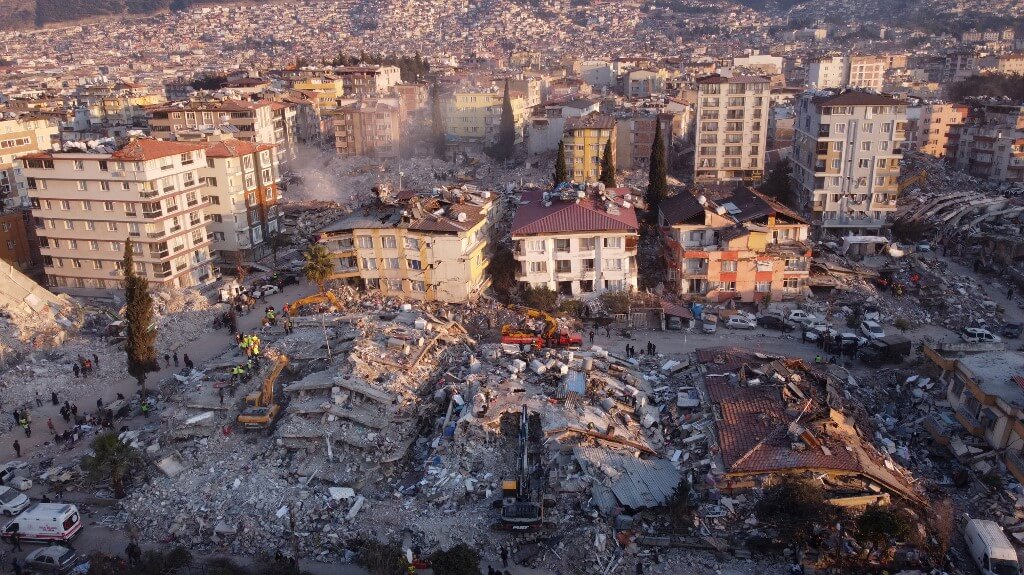The EU on Monday will host a conference in Brussels aimed at ramping up funds from international donors to help the victims of the devastating earthquakes that hit Turkey and Syria, Agence France-Presse reported.
Last month’s catastrophic 7.8-magnitude and 7.5 earthquakes flattened entire cities, killing more than 50,000 people across southeastern Turkey and parts of war-torn Syria.
Millions were displaced and a preliminary estimate from the United Nations says the damage in Turkey alone could amount to over $100 billion.
Flash floods in the region last week only added to the misery, killing at least 17 people living in temporary shelters.
The United Nations Development Program complained earlier this month about the poor level of response to a call made in mid-February for urgent funding.
Aid organization International Rescue Committee (IRC) urged donors to at least ensure the UN’s emergency appeal for $1 billion for Turkey and $397 million for Syria are fully funded.
The UN says the appeal for Turkey has so far only been 16 percent fulfilled, while the figure for Syria stands at 72 percent.
“Over a month since the earthquake, the situation in affected regions remains desperate,” said Tanya Evans, IRC Syria Country Director.
“With many homes damaged or destroyed, many people are left with no choice but to sleep in overcrowded and under-resourced collective shelters.”
The EU — which is hosting the conference in coordination with Turkey’s government — has said it plans to make a “significant pledge” for further relief, recovery, and reconstruction.
It has called on the rest of the international community to commit funds “in line with the scale and magnitude of the damage.”
Turkish President Recep Tayyip Erdoğan, who has admitted shortcomings in the government’s initial response as he bids for re-election in May, will call in via video link.
Turkey is a key partner for the EU, even if ties are often strained, and the bloc already gives billions in aid to help its eastern neighbor house refugees from Syria’s 12-year war.
Assad, Russia excluded
But the government of Syrian President Bashar al-Assad, sanctioned by the West since the brutal crackdown that sparked the ongoing civil war, will not be involved.
While international rescue teams and aid flowed quickly to Turkey, humanitarian organizations faced major hurdles reaching stricken areas in northern Syria.
UN investigators say the area became the “epicenter of neglect” as the warring factions and hesitancy by the international community have held up desperately needed aid.
EU foreign policy chief Josep Borrell said the disaster had only “further exacerbated the suffering caused by the existing conflict across Syria.”
“A country at peace would have been much better prepared to face this tragic event, and equipped to address its consequences,” he said.
Aid has belatedly begun reaching the stricken areas in northern Syria.
The EU and United States eased sanctions to try to speed up deliveries, and the Syrian government opened two new border crossings.
Assad has been receiving calls and humanitarian aid from Arab leaders in the aftermath of the quake, in a move analysts say could be the start of improved ties.
He arrived Sunday for his second visit since the quakes to the United Arab Emirates, which has already pledged more than $100 million in assistance.
The donor conference in Brussels is open to countries from the Middle East and across the globe, but Assad’s key backer Russia is excluded due to its war on Ukraine.


